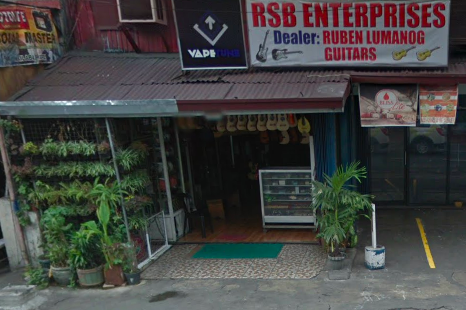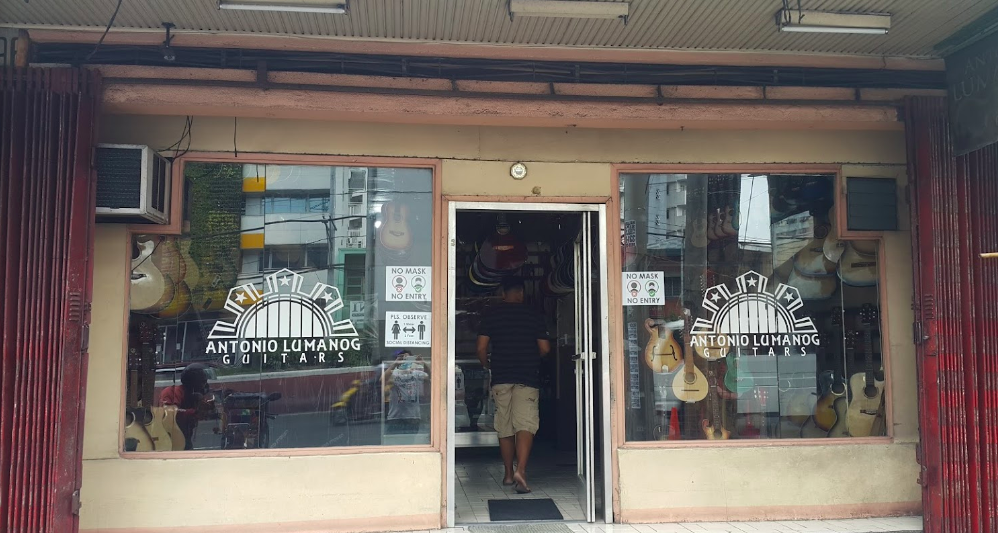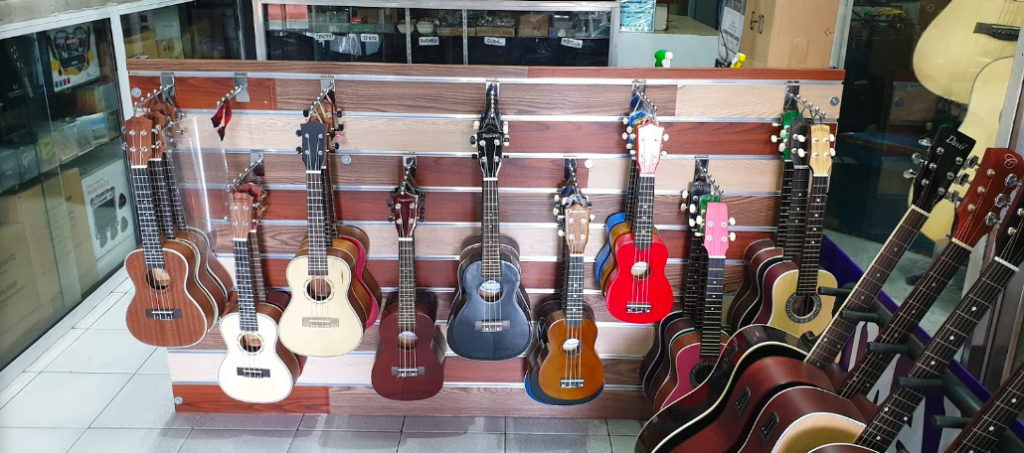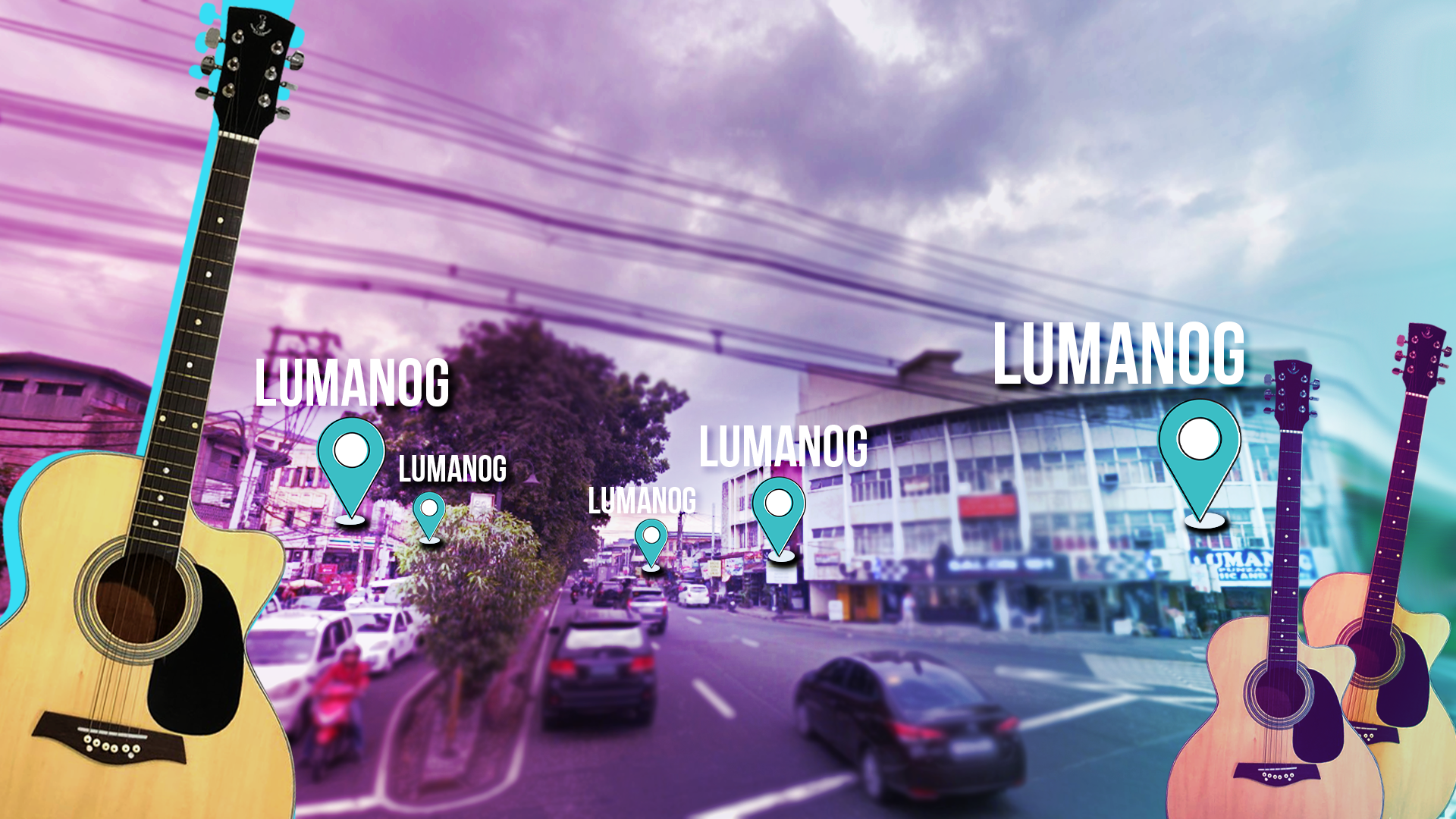Filipinos have a special love affair with stringed instruments. In fact, parents enroll their kids to music classes during weekends or summertime. The affair usually begins with a ukulele, advances to the bandurria (perhaps because they have a school Rondalla club?), and finally graduates to, yes, guitars. During the 80s, when folk houses were still a popular trend, folk singers entertained customers with merely a stool, a mic, and a dependable acoustic guitar. Pinoy folk, rock and alternative legends like Pepe Smith, Mike Hanopol, Ira Cruz, Ely Buendia, Cynthia Alexander, among others, have probably started from folk houses and eventually become perfect examples of musicians who have taken their love for guitar on a different scale. But certainly, they all could look back to a common beginning—like the way they picked their first acoustic guitars.
Cebu has always been known to be the center of the guitar-making industry in the Philippines, but in Manila, there is one popular brand that stands out, Lumanog—a distinct acoustic guitar hand-crafted by the Lumanog clan in Guagua, Pampanga. The Lumanog guitar business was started by the patriarch of the family who used to sell guitars that came from Cebu in the 1940s and was compelled to open up his own shop and handcraft his own guitars because of the rising prices of shipping and delivery from the south. He began with only 10 guitars on display with some accessories because of the superior and careful craftsmanship he put into each one. In the 1960s, his youngest daughter Paulina Lumanog Bansil and her husband Rufino took over the business that caught the attention of some American guitar factories.
When people in Metro Manila want to purchase their first guitar, they don’t have to go all the way to Cebu or Guagua. Instead, all they have to do is to blaze a trail to Sta. Mesa, scour its nooks and crannies for hubs and music shops that sell Lumanog guitars. It was Ruben Lumanog, the eldest of the clan who has been reportedly building guitars since he was 12 years old, who opened the first Lumanog store in Sta Mesa, earning him the moniker as the “Master Luthier” (a skilled craftsman who makes and repairs guitar).

Soon, other popular guitar stores followed suit. There’s AJ Lumanog Music Store in Old Sta. Mesa, Lumanog and Punzalan Music & Sports and Antonio Lumanog Music Store, both in Magsaysay Boulevard, and Ruben Lumanog farther down in V. Mapa Street. These prominent stores occupy a whole strip that sells all things guitar—from picks, strings, covers, straps, to a handcrafted guitar. They even accept made-to-order, personalized guitars!

What makes this Sta. Mesa strip popular is because of the many music stores standing back-to-back, selling particularly guitars and accessories, and Lumanog stores simply stood out from the rest. Every Lumanog guitar is made of high-quality solid wood—Rosewood, Spruce, Cedar, and even incorporating locally available wood alternatives like Jackfruit, Narra, Guava or any of the estimated 3,000 Philippine wood available, to the classic guitar protypes. The prices vary, depending on the need or specific purpose; there are entry-level beginner guitars, recital-level, and concert-level ones used by professional guitarists.’
Lumanog is famous throughout the Philippines because of its fair price, quality, and durability, especially that Pinoys know the traditional history of how Lumanog’s craftsmanship has been passed on from generation, to the nest. Lumanog guitars are typically every foreigner’s favorite and usually purchase them as ‘pasalubongs’ or gifts to their families abroad.

Music is truly embedded in the Philippine culture, especially our love for Lumanog guitars. Come to think of it, guitars and the Filipinos have such special bond—from the heydays of “harana” (serenade) and Yuletide Caroling, to modern-day entertainment, nothing could ever replace the humble, handcrafted guitar that has made our culture so rich, and colorful, like the vibrant history that the Lumanog stores in Sta. Mesa gave us.
There is a certain beauty and warmth in knowing that despite the fact that we could always drop P5 into a Karaoke machine to sing, nothing really beats a guitar to remind us of our musical culture. And come to think of it, despite this pandemic crisis, it is our musicality that has somehow made our lives more bearable, knowing that we can still visit that charming Lumanog strip in Sta. Mesa, Manila, in order to strike a chord and achieve the perfect melody, despite these trying times.
Other POP! stories you might like:
The Curious Case of Judiel Nieva
The story behind Sta. Mesa, Manila’s ‘Stop & Shop”
Employees take 100% ownership of Taylor Guitars
Transparent wood could replace glass as a sustainable alternative



